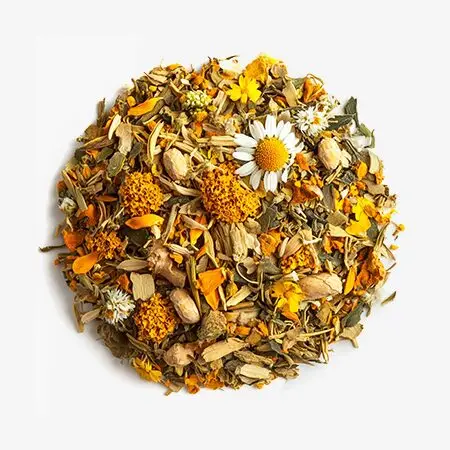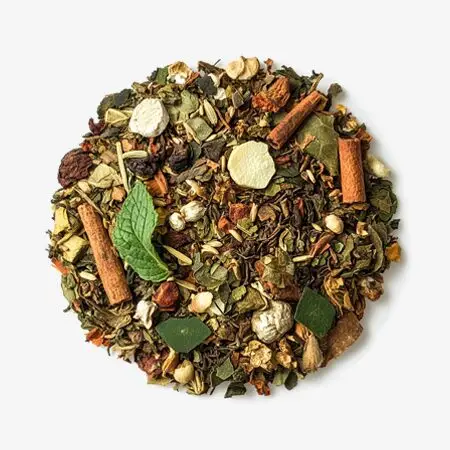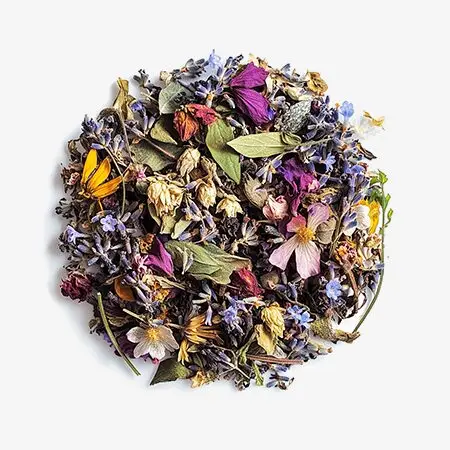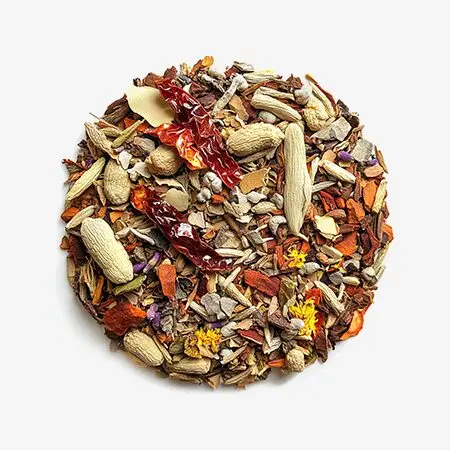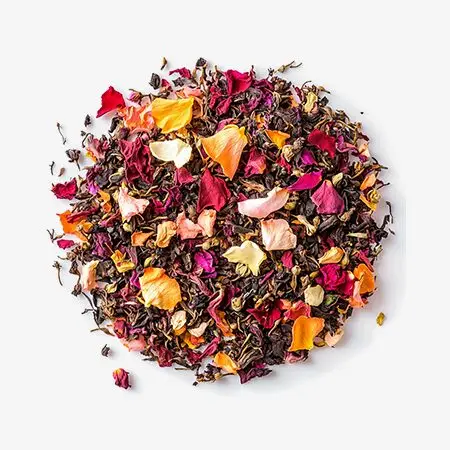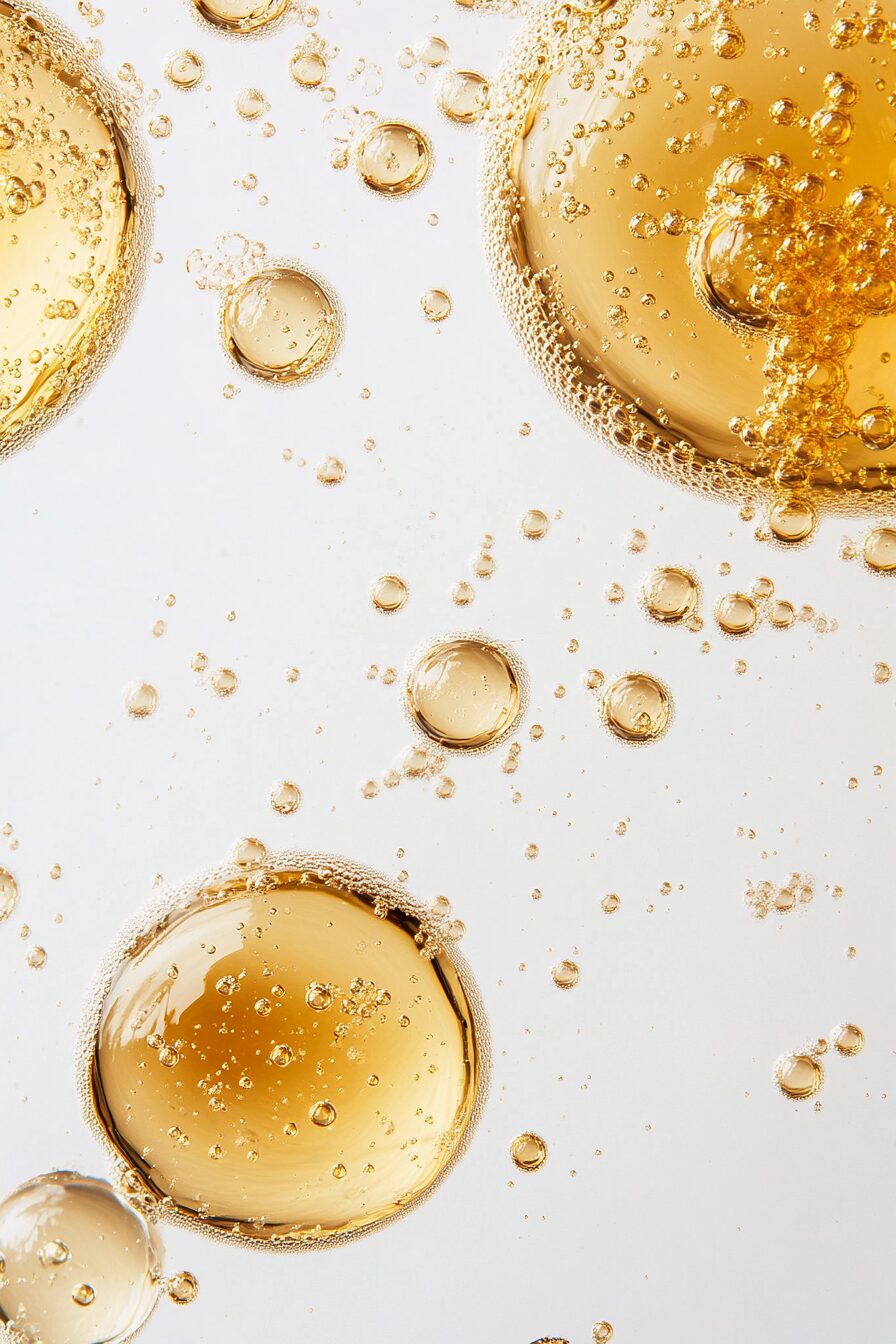
What is MICRODOSING?
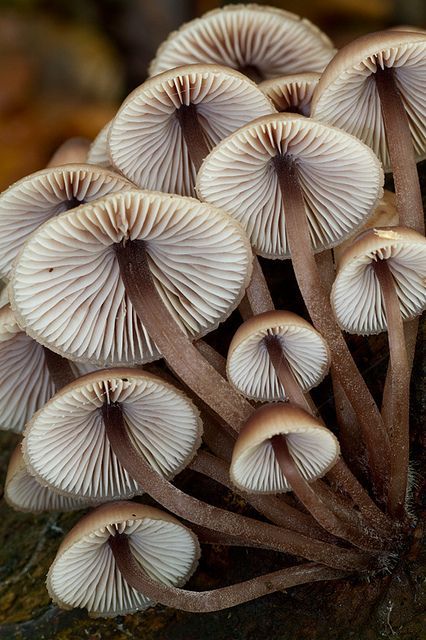
What is Microdosing?
Microdosing refers to the practice of taking small (micro) amounts of a typically psychedelic substance with the intention of improving aspects of one’s overall well-being. It’s important to note that microdosing does not induce an altered state of consciousness or hallucinations like a ‘full does’ can conceive. The effects of microdosing are said to be subtle and may produce increased creativity, enhanced focus and productivity, and a greater sense of calm and well-being.
It is important to note that this is a very small dose of the psychedelic substance and is not enough to produce a “trip” or the hallucinations often associated with these drugs.
Elle Ferrero
What substances can be Microdosed?
The more popular psychedelics to microdose include lysergic acid diethylamide (LSD) and psilocybin mushrooms (magic mushrooms). Others may microdose using other psychedelics, such as N,N-dimethyltryptamine (DMT) or the cactus peyote, though these seem to be less popular and may be harder to come by. Other substances that have been mentioned, with less popularity, are Ketamine, Cannabis, Methylenedioxyamphetamine (MDMA), Nicotine, and Methylphenidate (Ritalin).
Who can benefit from Microdosing?
Any forms of herbal or plant medicines can manifest in many different ways depending on the individual and their internal and external environments.
If you are considering microdosing, it’s important to consult with a medical professional first to make sure it’s safe for you and to discuss the appropriate dose and frequency.
For microdosers, age matters. People who are in their thirties tend to have a stronger sense of values, identity, and self-awareness which enables a user to be able to understand and integrate a psychedelic experience.
Unfortunately, many teenagers and young adults initially seek out drugs as a form of entertainment, numbing, or escapism. This mentality affects psychedelic use as many try them for the first time for recreation or as a ‘party drug’. Ironically, using psychedelics for the first time can have the complete opposite effect.
If you are interested in microdosing, it’s important to consider the reasons why you want to integrate plant medicine into your life and be conscious of how it is impacting your present awareness.
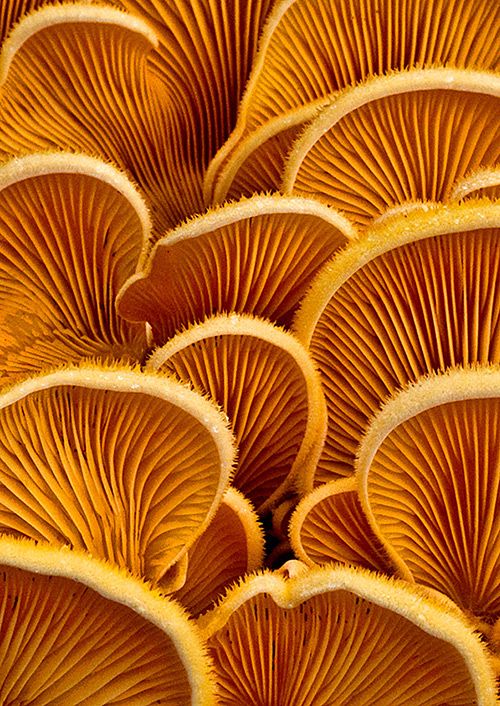
The benefits of Microdosing, as reported by some individuals, include:
The scientific evidence for the health benefits of microdosing psilocybin mushrooms is limited and largely based on small observational studies.
However, this does not negate the fact that humans are experiencing profound benefits through microdosing:
Improved mood: People have reported feeling more positive, energetic, and productive after microdosing. One study preformed showed 44% of participants perceived that their mental health was much better as a consequence of microdosing.
Increased creativity: Some people claim that microdosing enhances their creative thinking and problem-solving abilities.
Reduced anxiety and depression: Some individuals report that microdosing has reduced their symptoms of anxiety and depression.
Increased focus and productivity: People have reported improved focus, attention, and productivity while working or studying after microdosing with one study showing drastically lower levels of distractibility.
Improved physical performance: Some athletes and fitness enthusiasts have claimed that microdosing has improved their physical performance.
What are the challenges faced with Microdosing?
Psilocybin and many other microdosed substances are controlled substance and there uses are illegal in many countries, making it difficult to conduct rigorous scientific studies on their effects.
Moreover, the long-term effects of repeated microdosing are unknown and more research is needed to determine the safety and efficacy of this practice.
While many users do experience benefits, some individuals may experience negative effects like increased anxiety, impaired mood, and physiological discomforts.
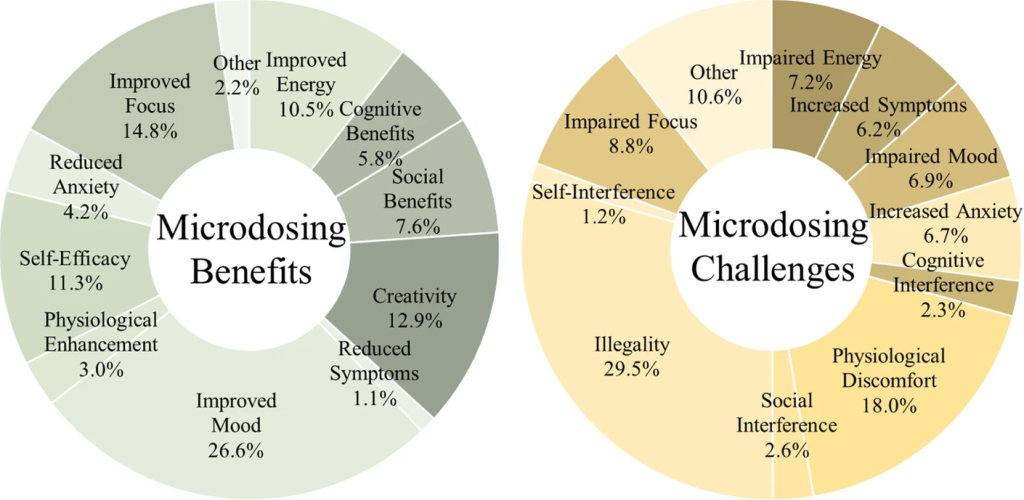
What is the future of Microdosing?
Future research is warranted to better determine the impact of these distinct practices—and of microdosing more broadly—on the aspects of cognition, mood, and well-being which microdosing is intended to enhance.
TL;DR
Microdosing is the practice of taking small amounts of a psychedelic substance with the intention of improving aspects of well-being. The substances most commonly microdosed are LSD and magic mushrooms, but others such as DMT and peyote are also used. Microdosing does not produce hallucinations or an altered state of consciousness and its effects are subtle, with some people reporting improved mood, creativity, focus and productivity, and reduced anxiety and depression. However, the long-term effects of microdosing are unknown and there is limited scientific evidence for the health benefits. Microdosing is illegal in many countries and some individuals may experience negative effects. Future research is needed to determine the impact on cognition, mood, and well-being.
References | Harm Reduction Journal | Medical News Today | Psychedelic Passage | Nature |
Subscribe To Our Weekly Newsletter
Share:
Related Posts


a NOURISHING alternative to COFFEE

BIOENERGETIC Hygiene

